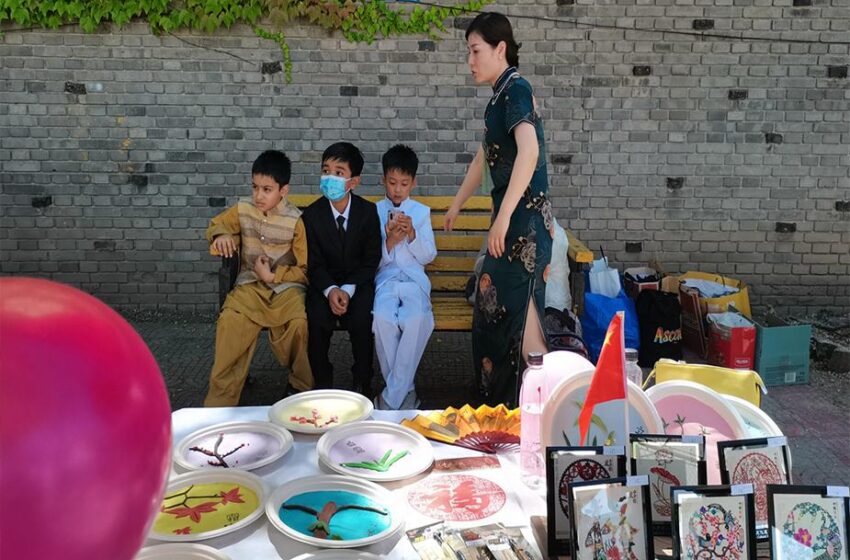CPEC strengthens Pakistan-China people-to-people exchanges

ISLAMABAD (VoP Web Desk): While munching on traditional steamed beef dumplings and noodles during a Pakistan-China cultural event in Islamabad, 12-year-old Muhmmad Irfan could not hide his love for Chinese food.
“The variety of delicious dishes the Chinese cuisine offered made it one of the most favourite cuisines in Pakistan. Especially after the China-Pakistan Economic Corridor (CPEC) was launched, many Pakistanis got to know about the Chinese food including hotpot, dumplings, noodles and many more,” he said.
“Many restaurants have also popped up across the country over the past decade, showing locals’ passion for Chinese food.”
Along with Irfan, at least 100 other participants, including Pakistanis and Chinese, attended the China-Pakistan Civilisation Exchanges and Mutual Learning on Friday, which featured documentaries on Chinese culture, cultural dances performances, Chinese tea stalls, food stalls, language learning and art exhibition as well as a display of the progress of CPEC projects.
Launched in 2013, CPEC is a corridor linking the Gwadar port in Balochistan with Kashgar in northwest China’s Xinjiang Uygur Autonomous Region, which highlights energy, transport and industrial cooperation.
Irfan said he thoroughly enjoyed the event and learned a lot about Chinese culture, saying there should be more such cultural events to promote mutual understanding and relations between the two peoples.
The transformative impact of CPEC, fostering trade, infrastructure development, and cultural fusion between the two neighbours and the enduring friendship between Pakistan and China is strengthened with each passing day with enhanced economic cooperation and people-to-people ties.
There is a need for further cross-cultural understanding and a vibrant tapestry of shared heritage for a prosperous future.
“The variety of delicious dishes the Chinese cuisine offered made it one of the most favourite cuisines in Pakistan. Especially after the China-Pakistan Economic Corridor (CPEC) was launched, many Pakistanis got to know about the Chinese food including hotpot, dumplings, noodles and many more,” he said.
“Many restaurants have also popped up across the country over the past decade, showing locals’ passion for Chinese food.”
Along with Irfan, at least 100 other participants, including Pakistanis and Chinese, attended the China-Pakistan Civilisation Exchanges and Mutual Learning on Friday, which featured documentaries on Chinese culture, cultural dances performances, Chinese tea stalls, food stalls, language learning and art exhibition as well as a display of the progress of CPEC projects.
Launched in 2013, CPEC is a corridor linking the Gwadar port in Balochistan with Kashgar in northwest China’s Xinjiang Uygur Autonomous Region, which highlights energy, transport and industrial cooperation.
Irfan said he thoroughly enjoyed the event and learned a lot about Chinese culture, saying there should be more such cultural events to promote mutual understanding and relations between the two peoples.
The transformative impact of CPEC, fostering trade, infrastructure development, and cultural fusion between the two neighbours and the enduring friendship between Pakistan and China is strengthened with each passing day with enhanced economic cooperation and people-to-people ties.
There is a need for further cross-cultural understanding and a vibrant tapestry of shared heritage for a prosperous future.


